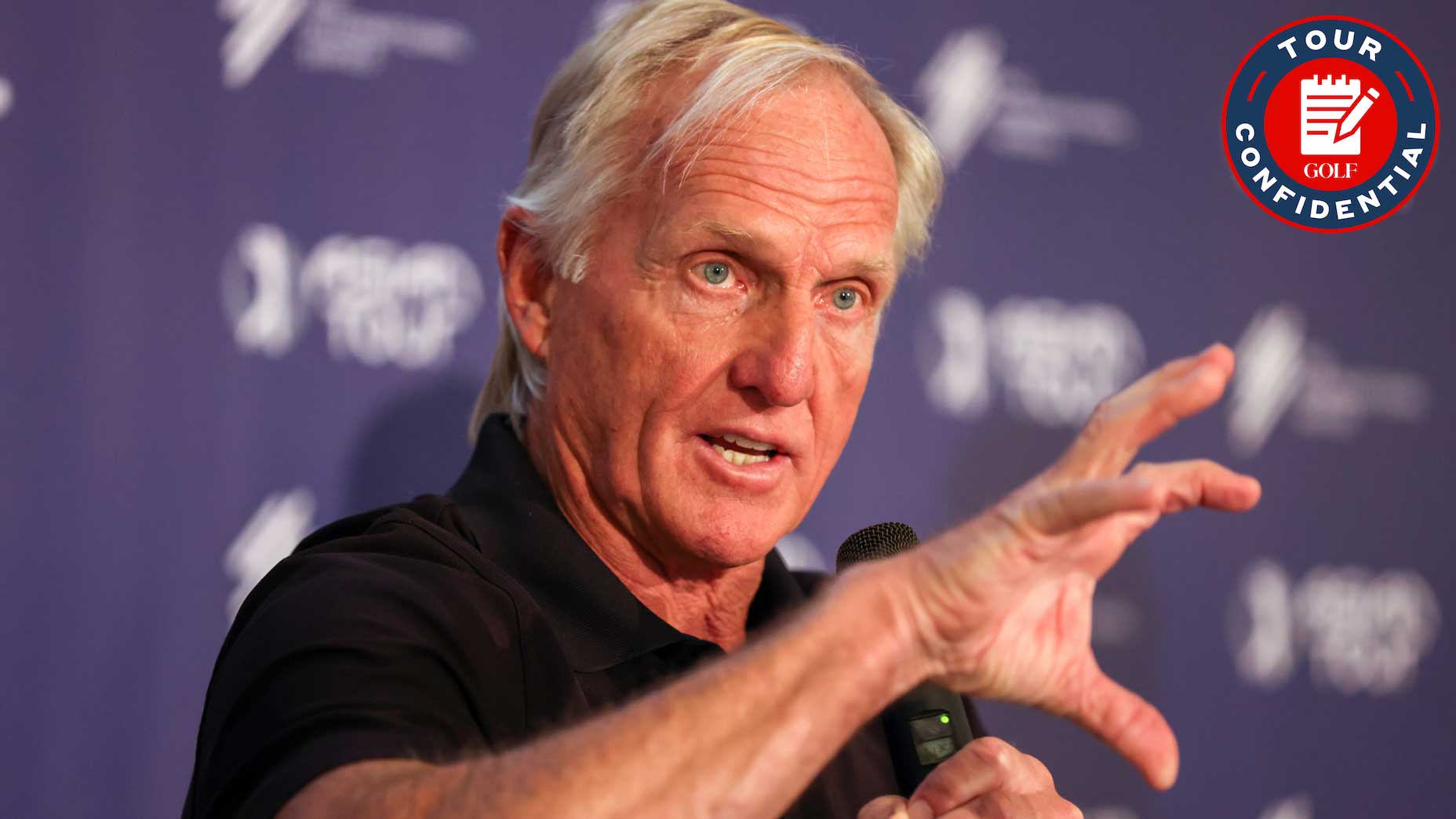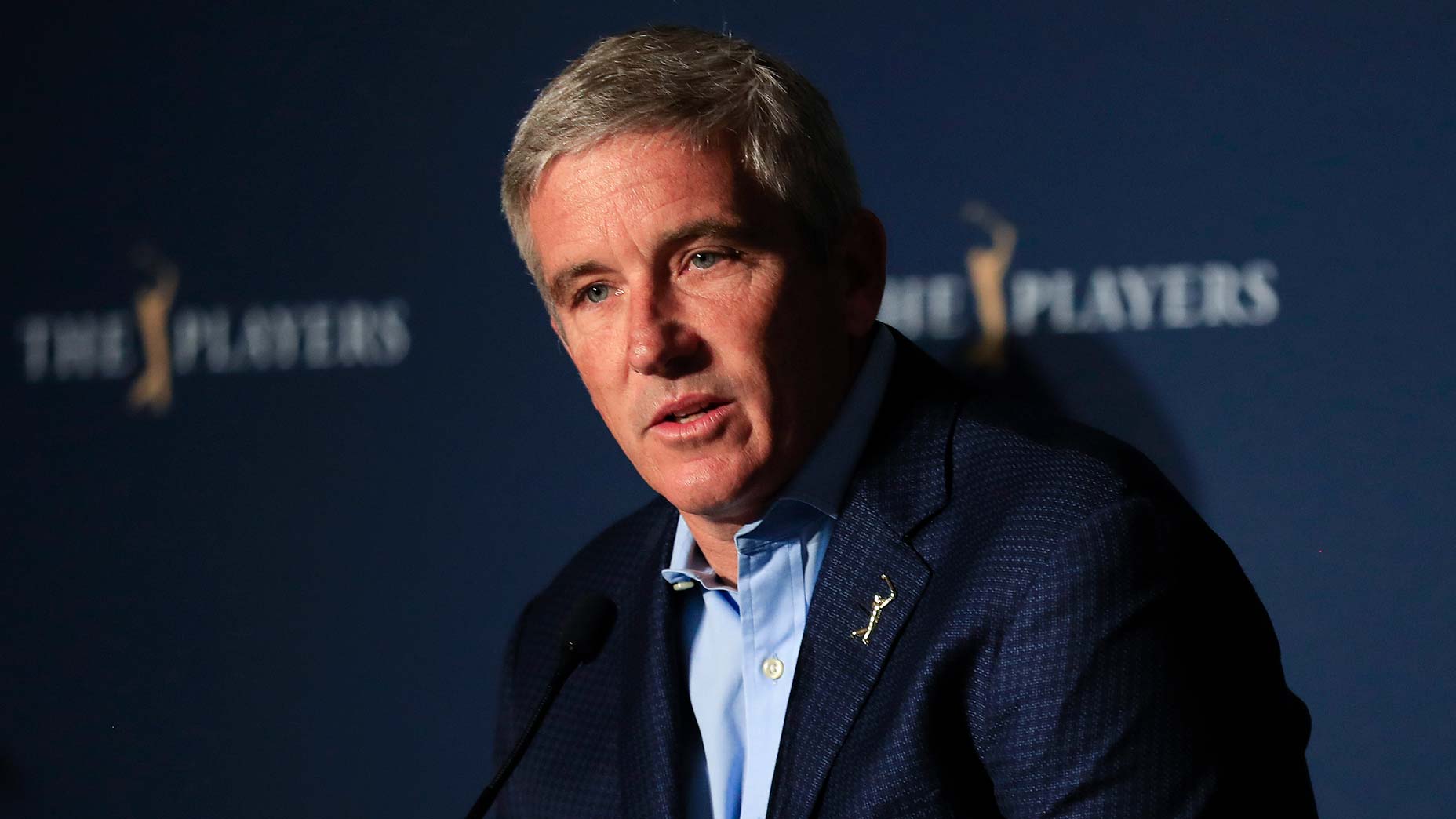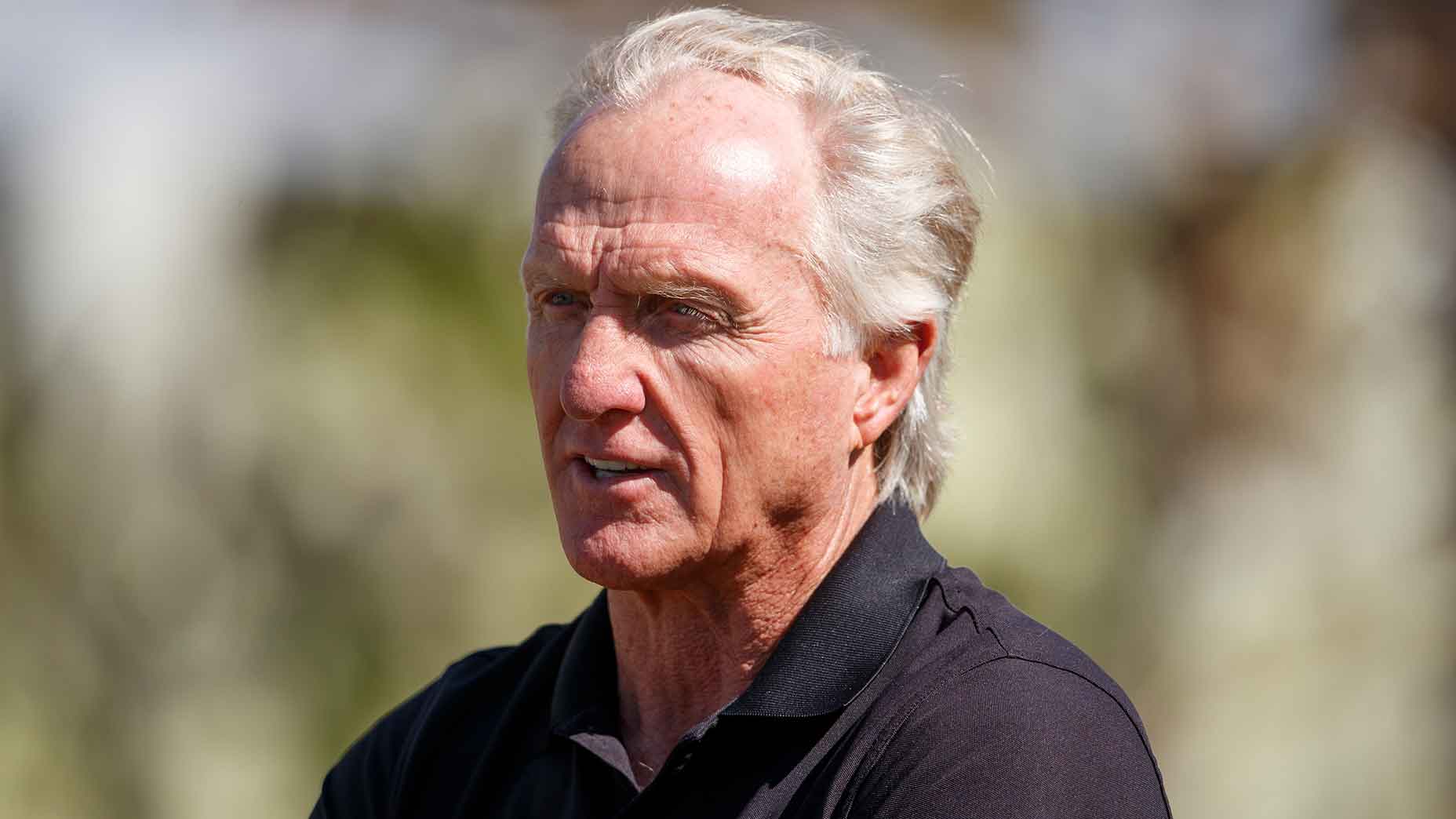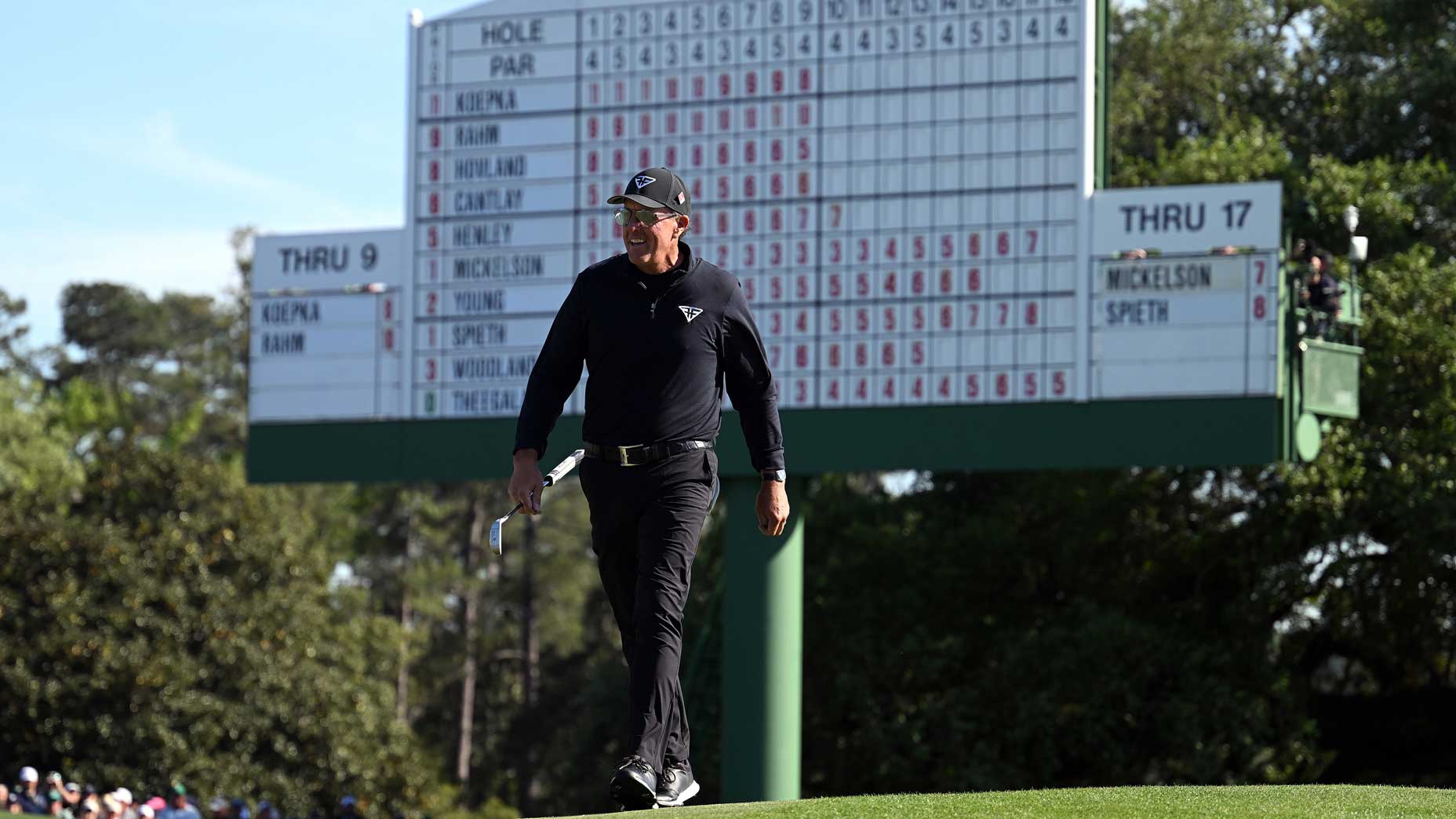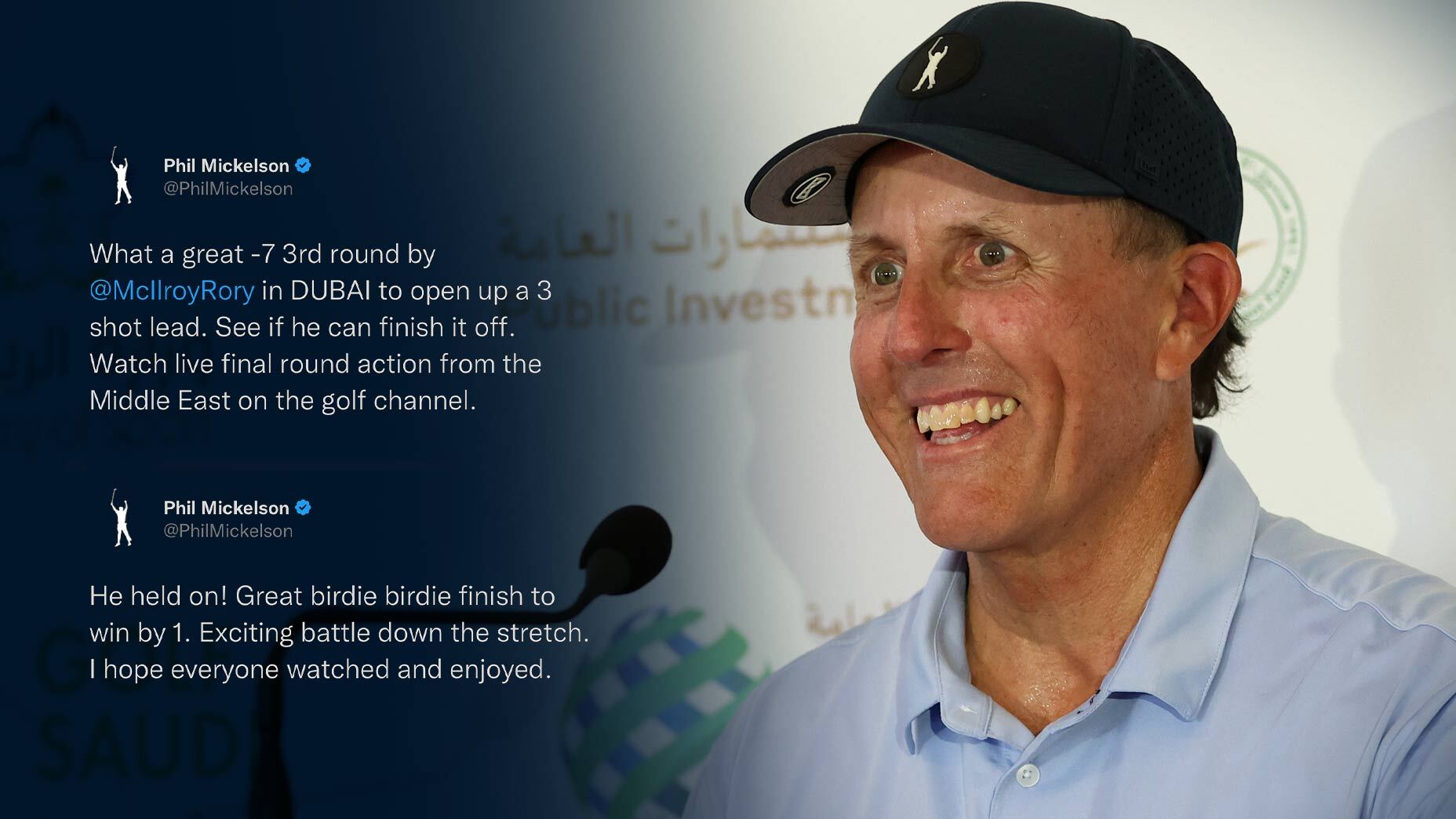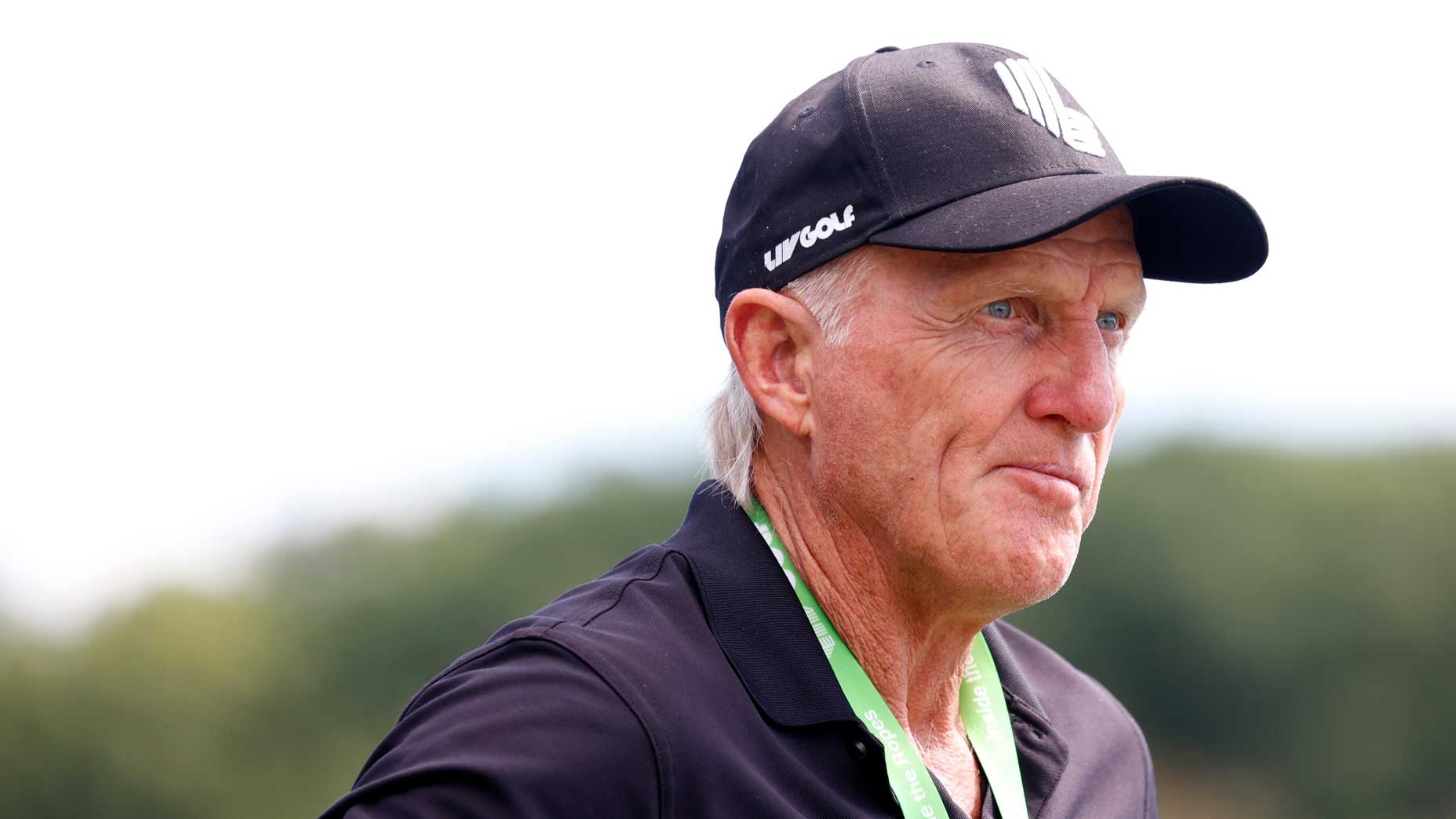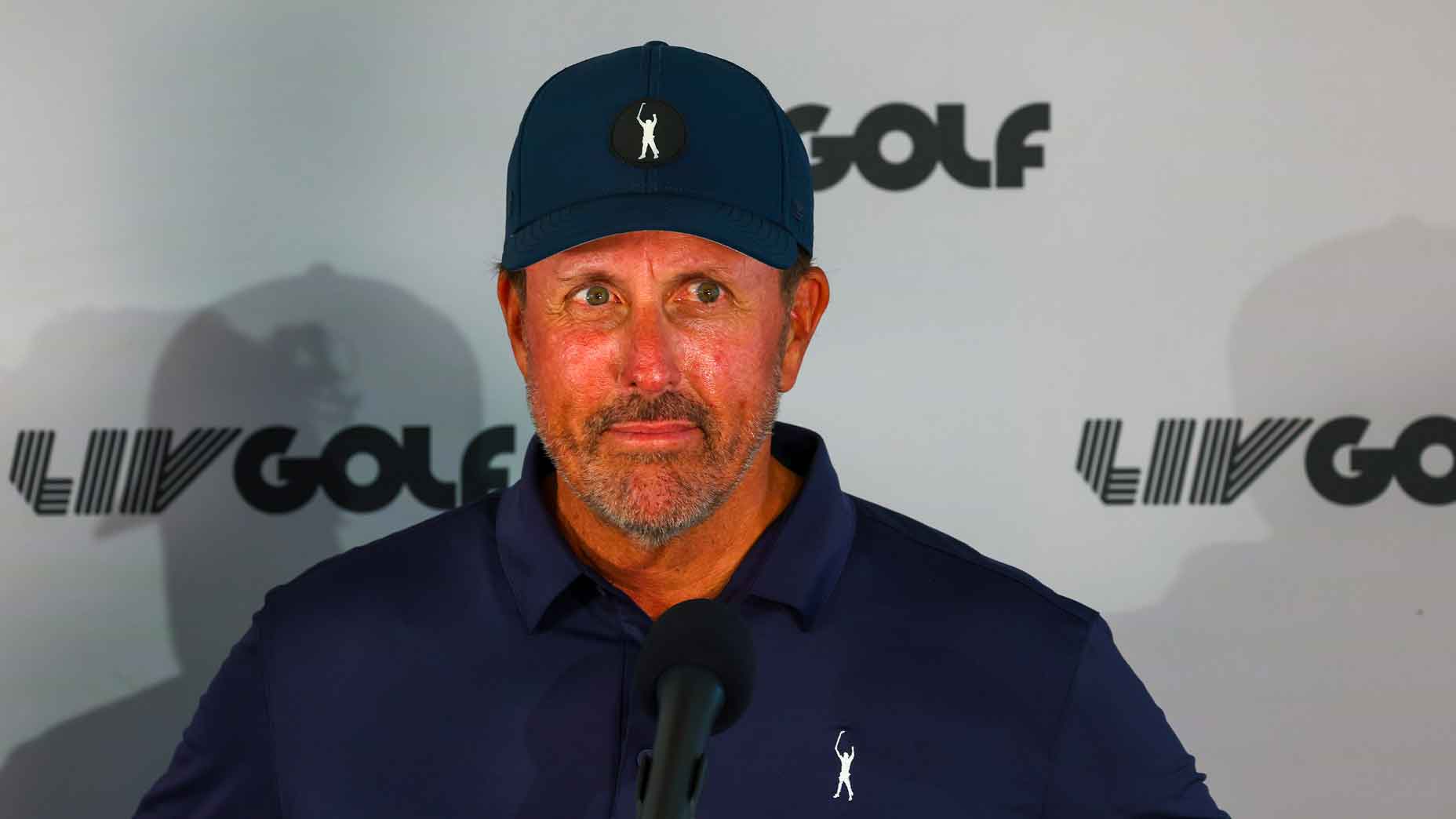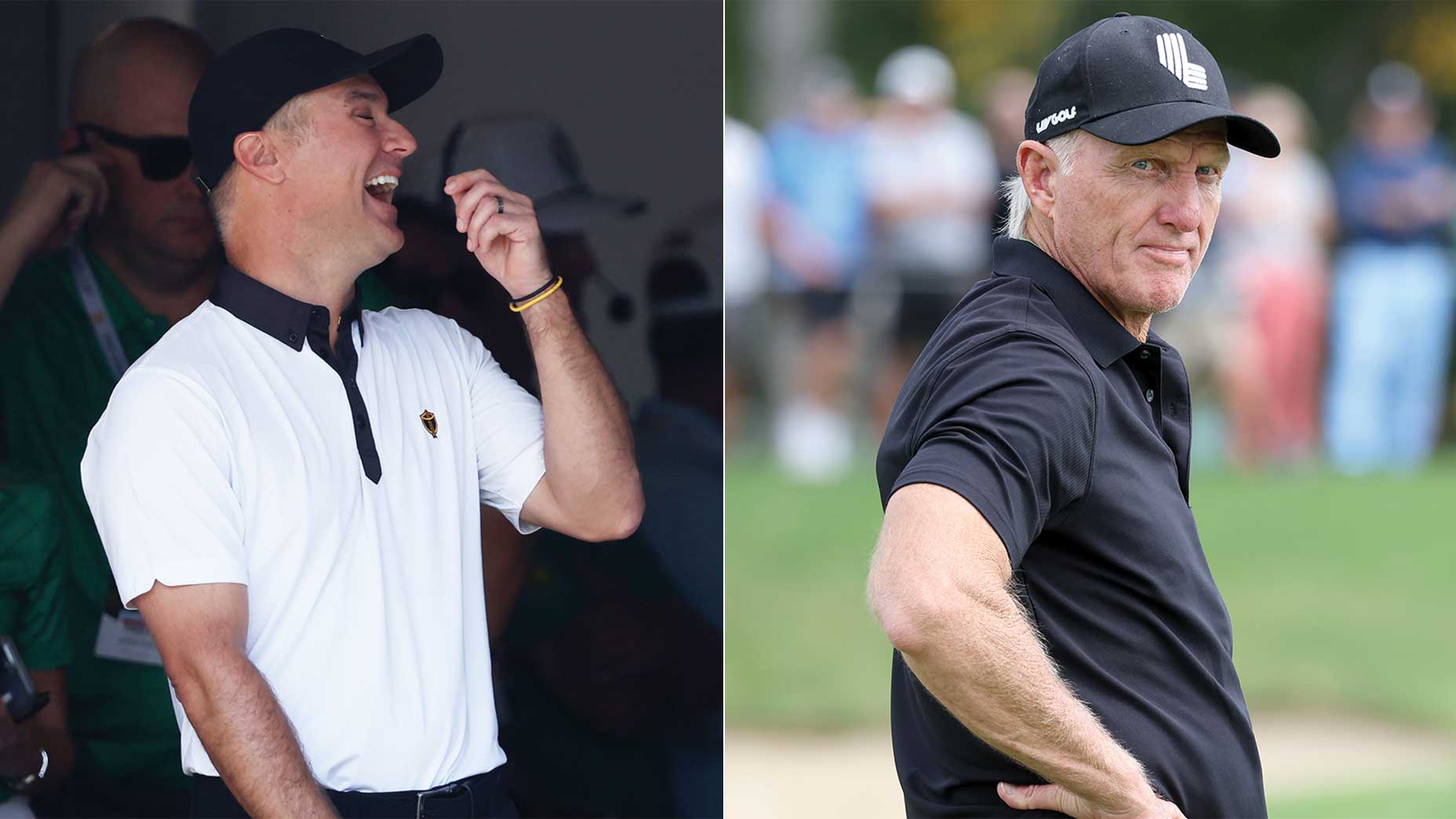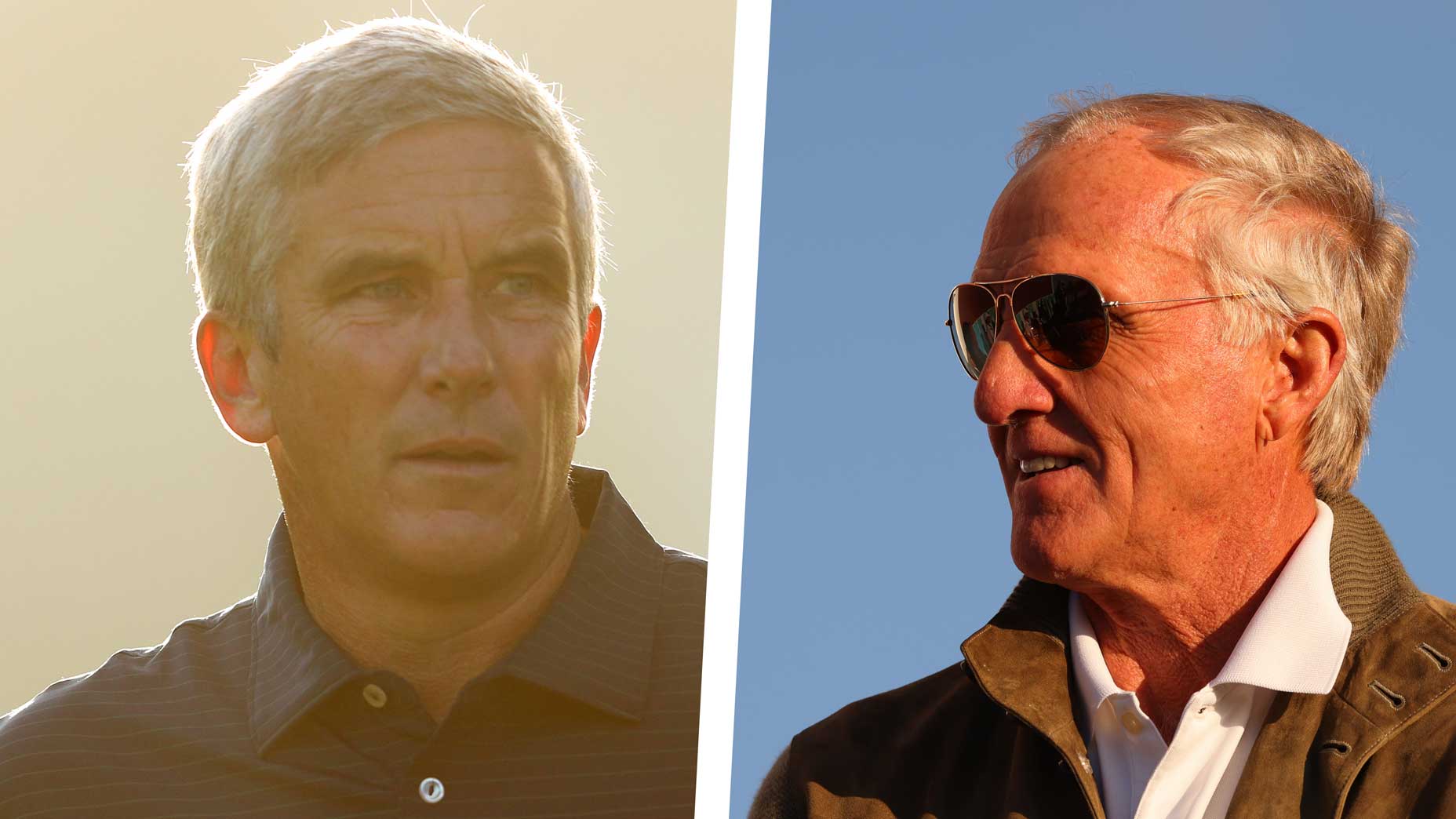As Greg Norman and his rich Saudi investors seek to reshape professional golf, you could make the case they are missing a golden opportunity here. Their LIV series is scheduled to have eight new events this year, each with a 48-man field, with the men playing as individuals but also on 12 four-man teams.
But wouldn’t the concept be better with women? Even one woman per team would make this series more unusual and more interesting.
While we’re at it, why not have a woman captain each team?
The full name of this collection of tournaments is the LIV Invitational Golf Series. Norman is the league’s commissioner and the CEO of the company that owns it and runs it. It’s backed by a private, vastly endowed investment company with a willfully bland name, the Public Investment Fund, based in Saudi Arabia. Saudi Arabia is a country that has a long history of treating women as second-class citizens, though there has been some progress in recent years. (In 2018, women were granted the legal right to drive!) Imagine, as a statement in progress, seeing women golfers playing alongside men when the LIV series goes to Saudi Arabia in its seventh week, and in all the other weeks.
Tour Confidential: LIV Golf surprises, Ryder Cup news, golf’s sweetest swingsBy: GOLF Editors
This league was always going to have political issues, because of its funding source. But having women competitors would surely sway some of its doubters.
Norman said he has already sent out 250 emails to leading male golfers, from all over the golf-playing world, alerting them to this new series. It’s unlikely that he will have trouble filling the slots with established players. You could also see freshly minted pros, with elite amateur resumes, making their debuts in the LIV series. Why not? The first question every hot-shot amateur shopping for an agent asks is this: What playing opportunities can you guarantee me? What payday guarantees can you make me?
The LPGA might be more open to allowing its players to play than the PGA Tour is, as its players have never played for anything close to the sums being offered here.
Last week, Norman announced a $25 million purse for each of the first seven tournaments and $50 million purse for the eighth, plus $5 million for the winning team each week. Divide $255 million by 48 players. The eight-event payday for the middle-of-the-pack player who plays all eight events and never wins a team event will be in the vicinity of $5 million. A career in eight weeks.
In the history of the PGA Tour, only 344 players have earned more than $5 million over the course of their careers. On the LPGA circuit, only 76 players have done the same.
With this kind of money being offered, there are bound to be lawsuits in U.S. federal courts, if the PGA Tour blocks its members from playing the LIV series, as is expected. You can expect to see the phrases independent contractor and right-to-work law in regular circulation in the coming months.
They are very different entities, LIV Golf and the PGA Tour. LIV Golf Investments is a for-profit company. The PGA Tour is not. Over the years, the PGA Tour has given billions to charities, and each Tour event relies on volunteer workers who are both golf fans and want to support their event’s local charity. The system has worked for a long time, even as the Tour has gone from a series of regional feel-good events to a global business with a vast bureaucracy.
LIV Golf is planning a charitable component for this new series. Part of the incentive for host clubs — including Pumpkin Ridge and Trump Bedminster, both of which had been the site of USGA events — is a promise from LIV to donate at least $1 million to the charity of the host club’s choice.
In recent weeks, Dustin Johnson, Bryson DeChambeau and Jon Rahm have all announced their loyalty to the PGA Tour, one after the other. The immediate reaction was that those proclamations, from three of golf’s biggest stars, and following similar statements from Tiger Woods and Rory McIlroy and Jordan Spieth, had wounded, perhaps fatally, LIV’s prospects. That view already looks dated. The number $255 million got a lot of attention.
Also, Norman has a simple and sensible way to get players, and golf fans, to think about his tour. “It’s additive,” he has said repeatedly in interviews. For fans and its players, it would be. But try saying “it’s additive” to the people who run Tour events in the weeks opposite the LIV events. There’s no denying, though, that it’s an effective phrase.
Could the PGA Tour legally sanction players who defect to a rival tour? Here’s what experts sayBy: Josh Sens
Also, on the subject of not-dead-yet, professional athletes have a tendency to change their minds. See: Brady, Tom (football); Jordan, Michael (basketball); Holyfied, Evander (boxing).
But the biggest thing here is the money, the vast amounts of money being dangled in front of an elite group of male professional golfers. For the Love of Money. It’s a song title. It’s a movie title. And it’s a way of life.
Norman first started talking about his desire to start a world golf league close to 30 years ago. The best players on Mother Earth, gathering all over the world, to play golf for big bucks. Good for the touring pros (more money) and good for fans, too. Right? But it didn’t have a chance, not the way he was going about it. He didn’t have enough money behind his idea — or enough political capital.
Human beings are tribal. We’re hardwired to protect turf, to seek status, to cling to power. (You’ve watched The Godfather, have you not?) In addition to the funding issue, the star-driven world golf tour that Norman envisioned would have required the cooperation of the PGA Tour, the European Tour, plus pro tours in Japan and South Africa and Australia. It never got off the ground.
But this time Norman has something he didn’t have then: the promise of monster, set-for-life paydays. This time, Norman is armed with hundreds of millions of dollars from the Public Investment Fund, an investment behemoth that has, by some estimates, $500 billion at its disposal, or far more. (Investigative reporters at the Wall Street Journal and the Financial Times have been able to make only rough estimates.) When you have almost-make-believe sums of money available to you, you can buy the world golf tour you envision. You can buy players, venues, broadcast partners. They say money can’t buy love, but it buys most everything else, including loyalty.
They say money can’t buy love, but it buys most everything else, including loyalty.
This is just an opinion, but I don’t think the Saudi goal here is to make money via the promotion of professional golf. That’s never been a money-making proposition, really. I think the Saudi goal is to create a tourist economy with golf as a central focus, to appear more modern, more Western, more inviting to the world, in every sense.
Part of the appeal of professional golf is that its tournaments are a laboratory of merit. Look at the leaderboard at the Players. The event was won by Cameron Smith who grew up in a working-class home in Australia. He was chased by, among others, Anirban Lahiri, whose father is a gynecologist in India. There are a lot of different paths to 14 under, to 13 under, to 12 under, to the Players, the Masters, the British Open. But the culture of Saudi Arabia is anything but a meritocracy. Golf would help it. Golf as a capitalist tool. It’s a long-standing marriage.
At the Players, Smith earned $3.6 million for his efforts. If you asked him where, precisely, the money came from, it would be unlikely that he would know. Corporate America, would be a short, accurate answer. The main thing he surely knows about the money is that it will come to him by direct deposit. No check is going to bounce here.
And no check is going to bounce in this new LIV series, either. The players who play in it are not likely to care about the Saudi history of humanitarian abuse or oil-price profiteering. To date, Rory McIlroy is the only player to have publicly questioned the funding source.
There are times when golf is willing to step into politics, albeit with great reluctance. The Trump Bedminster course — which has held a USGA junior event and a U.S. Women’s Open — was long scheduled to be the venue for the PGA Championship in May. But five days after the Jan. 6 Capitol Hill riots, with the death and destruction it wrought, the PGA of America moved the event from Trump Bedminster to Southern Hills in Tulsa, Okla. The Trump name was too hot for even the staid PGA of America.
7 big changes proposed in the new Saudi-backed golf leagueBy: James Colgan
But numerous American players played in the Saudi International in February, including players pledging their loyalty to the PGA Tour. Harold Varner won that Saudi event, by a shot over Bubba Watson. It was Phil Mickelson’s most recent start.
Mickelson, at age 50, won last year’s PGA Championship, amazingly so. Now, it’s not even clear if he will defend his title. For months, Norman and Mickelson were both closely associated with the development of this new golf tour. Norman has said in recent interviews that he and Mickelson have not talked in weeks. Norman, while singing Mickelson’s praises as an ambassador of the game, has also said that he wants to give Mickelson the space Mickelson says he needs as he takes stock of his life. Fair enough.
But there is more than that going on. Mickelson, in comments published by the writer Alan Shipnuck, called the Saudi political elite “scary mother—-ers.” Mickelson cited the history of lethal human-rights abuses at Saudi hands. Did those two words from Mickelson make Norman’s life more difficult? Absolutely.
Norman has a deputy at LIV Golf named Sean Bratches, an effective TV veteran with years at ESPN. One of Bratches’ messages is that golf-on-TV is a passive activity. “You lean back,” he says. He’s looking to make golf-on-TV a “lean in” experience.
So, three days of golf, not four. Just 48 players at maximum. Shotgun starts so all the players are on the course simultaneously. No cut. A team component. Betting opportunities. A massive rethinking of golf as it is now. And this is what it is now: week after week after week of 72-hole, four-day stroke-play events, all over the world. It’s numbing. You can see the appeal in what Bratches describes.
Say whatever you wish about Norman. Golf fans have for 35 years. There is (to me) a charisma about him. He has a distinct energy and drive. In his every interaction, he makes things personal. We’ve talked often over the years. It’s seldom a casual experience. Norman doesn’t do casual. You likely know his nickname: Shark.
It’s not a common thing, for a source to ask a reporter for an opinion, but Norman’s stock-in-trade is the opposite of business-as-usual. Norman asked me, some time ago, what I thought of the league he was then trying to launch. As he answers my queries, I felt I should answer his. I said (putting various responses in one place here) that I thought he had a compelling idea, and that that if Warren Buffet were the funding source, the whole thing would seem different. But with the Saudi funding, many people (I among them) would be uncomfortable with it.
“Fair enough,” Norman said.
He was unfazed by my response. Why would he be otherwise? He’s had his eye on his prize all the while.
Michael Bamberger welcomes your comments at Michael.Bamberger@Golf.com

